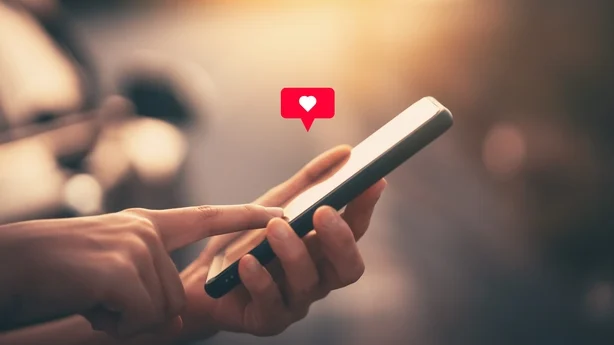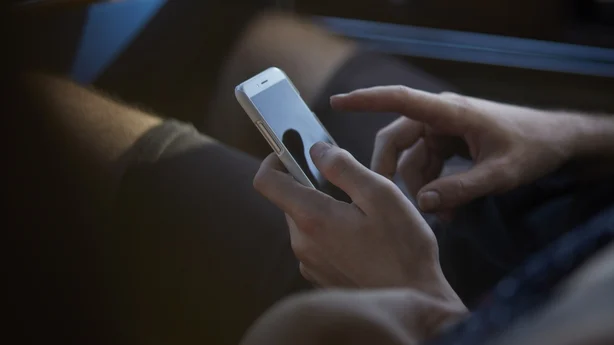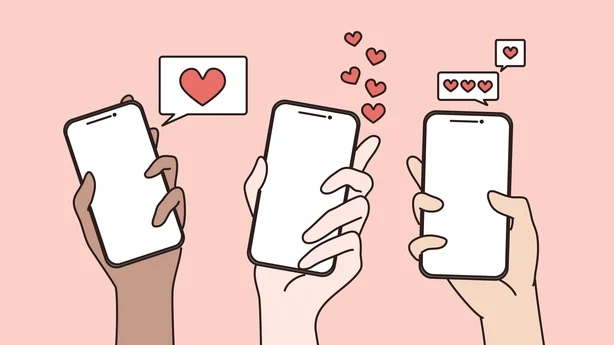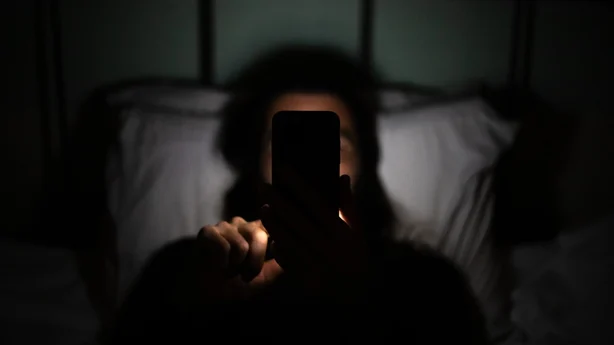As a class action lawsuit haunts Match Group, the company behind dating apps such as Tinder and Hinge, could this be the end of swiping right? And do people care either way? Kate Demolder writes.
Are you on the apps? The gay one, the vegan one, or the sexually adventurous one? And do you think real love can actually be found on them––or is the longest relationship any of us experiences by way of them with the app itself?
On Valentine's Day this year, six dating app users filed a proposed class-action lawsuit in America accusing Tinder, Hinge and other Match dating apps of using addictive, game-like features to encourage compulsive use.
Match’s apps, according to the lawsuit filed in federal court in the Northern District of California, "employ recognised dopamine-manipulating product features" to turn users into "gamblers locked in a search for psychological rewards", generating "market success by fomenting dating app addiction that drives expensive subscriptions and perpetual use".

Match Group, the umbrella company behind Match, Tinder and Hinge, claimed via official statement that the lawsuit was "ridiculous and has zero merit".
The spokesperson continued: "Our business model is not based on advertising or engagement metrics. We actively strive to get people on dates every day and off our apps. Anyone who states anything else doesn't understand the purpose and mission of our entire industry."
Despite Hinge's advertising slogan boasting that it is "designed to be deleted", some online dating experts say the lawsuit reflects a broader backlash to the way apps were gamifying human experience for-profit and leaving people feeling manipulated.
As anyone who has used these apps will know, clear parallels between love algorithms and online gaming exist. Indeed, it’s been argued that addiction has been crow-barred into these apps from the start. Tinder CSO Jonathan Badeen once said that he was inspired to create the swiping mechanic employed by almost all popular dating apps by a psychological experiment on pigeons which essentially "turned them into gamblers".

Experts, too, have highlighted how the gamification of dating apps has been programmed to make us seek hits from so-called 'happy chemicals’––dopamine and serotonin––upon using.
"Dating apps serve other functions besides the one advertised," says Dr Elias Aboujaoude, Clinical Professor of Psychiatry at Stanford University and author of A Leader’s Destiny: Why Psychology, Personality and Character Make All the Difference.
"Our research suggests that almost half of users are not looking to meet, which begs the question of what they are doing on there. I think many people gravitate to dating apps for validation, distraction or other social network-like functions. Indeed, we should think of dating apps more like social networks, and to the extent that social networks can be addictive, so can dating apps."
As the Match.com lawsuit claims, dating app users are being programmed to constantly seek a dopamine hit from each swipe in what it calls a "pay-to-play" loop. Which is likely why the "most compatible" feature on Hinge will always produce someone you could never see yourself with, and why when you consider deleting your account, sudden offers of freezing your account, a free upgrade, or a complete reset begin to appear.

When I was on dating apps, I quickly found myself in a state that could be described as auto-cannibalistic; I would download the app on a weekday, mainly when I was bored, lonely or in need of validation, delete it at the weekend, and re-download on a Sunday night when in need of validation again.
This cycle persisted throughout the pandemic and was largely reflected within my friend group. Rarely did we consider the person in the photos. Even more rarely, still, did we consider this process more than a game. This chimes with the view of cultural anthropologist Natasha Dow Schüll, whose book 2014 book Addiction by Design is a compelling inquiry into the intensifying traffic between people and machines of chance, offering clues to some of the broader anxieties and predicaments of contemporary life.
In a 2016 interview with the Daily Beast, Schüll described using a dating app as akin to using a slot machine: "The parallels are in the way experience is formatted, delivering or not delivering rewards. If you don’t know what you’re going to get and when, then that brings about the most perseverating kinds of behaviour, which are really the most addictive," she said.
"You build up this anticipation. That anticipation grows and there is a kind of release of sorts when you get a reward: a jackpot, a ding-ding-ding, a match."

According to a survey by dating service eHarmony, 51% of UK daters believe that dating apps sometimes have a negative effect on their mental health, while more than half (55%) of the 1,001 surveyed think they spend too long swiping.
Indeed, the same survey found that the average person is logging in for 55 minutes each day, and has six different conversations on the go at a time.
The desire to continuously swipe lest a great opportunity is just one passive movement away can be traced back to technology engineer Aza Raskin, who in 2006, enabled infinite scrolling to allow internet users to glide through websites without pause. With this mechanic, no discernible endpoint exists, and people become easily dehumanised.
While speaking to Panorama in 2018, Raskin expressed guilt over creating the feature at all: "It’s as if they’re taking behavioural cocaine and just sprinkling it all over your interface and that’s the thing that keeps you coming back and back and back."

Dating apps have the potential to be a radical form of transformative technology which improves our quest for intimacy. However, it is difficult to imagine a future wherein tech companies choose to prioritise people over profit margins.
Dating apps are for-profit, commercial projects. Perhaps this is why they feel so personally disappointing––because they are born for capitalism, and not for human enjoyment.
That said, romantic love has always been gamified to some degree. The ‘chase’ breeds competitivity, with the prize usually resulting in the prize of another person. And, lest we forget, offline dating has it's own obstacles.
Still, hope springs eternal - especially for those of us looking for the real thing. But is that exactly what they want us to think?
"Dating app makers, like all app makers," Dr Aboujaoude concludes, "want the experience to be 'sticky'. They are incentivised to keep you on the app because your time and eyeballs are monetised—it’s their business model. In that sense, finding love and 'graduating' from the app would seem to go against their interests.
"Addictions are known to include behavioural addictions such as gambling and video games. I do think that, for some people, the relationship to dating apps can start meeting the criteria for a behavioural addiction as well, although the field does not yet conceptualise it as such and more research is needed."
If you have been affected by issues raised in this story, please visit: www.rte.ie/helplines.
Disclaimer: The copyright of this article belongs to the original author. Reposting this article is solely for the purpose of information dissemination and does not constitute any investment advice. If there is any infringement, please contact us immediately. We will make corrections or deletions as necessary. Thank you.






